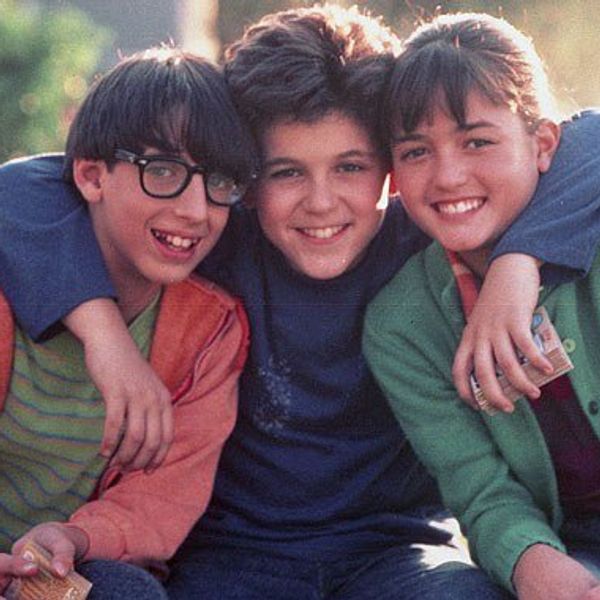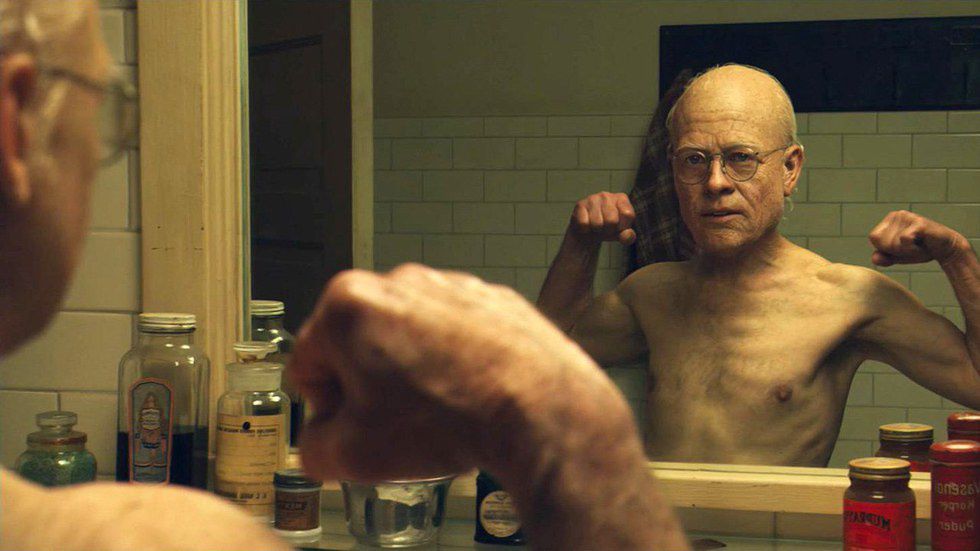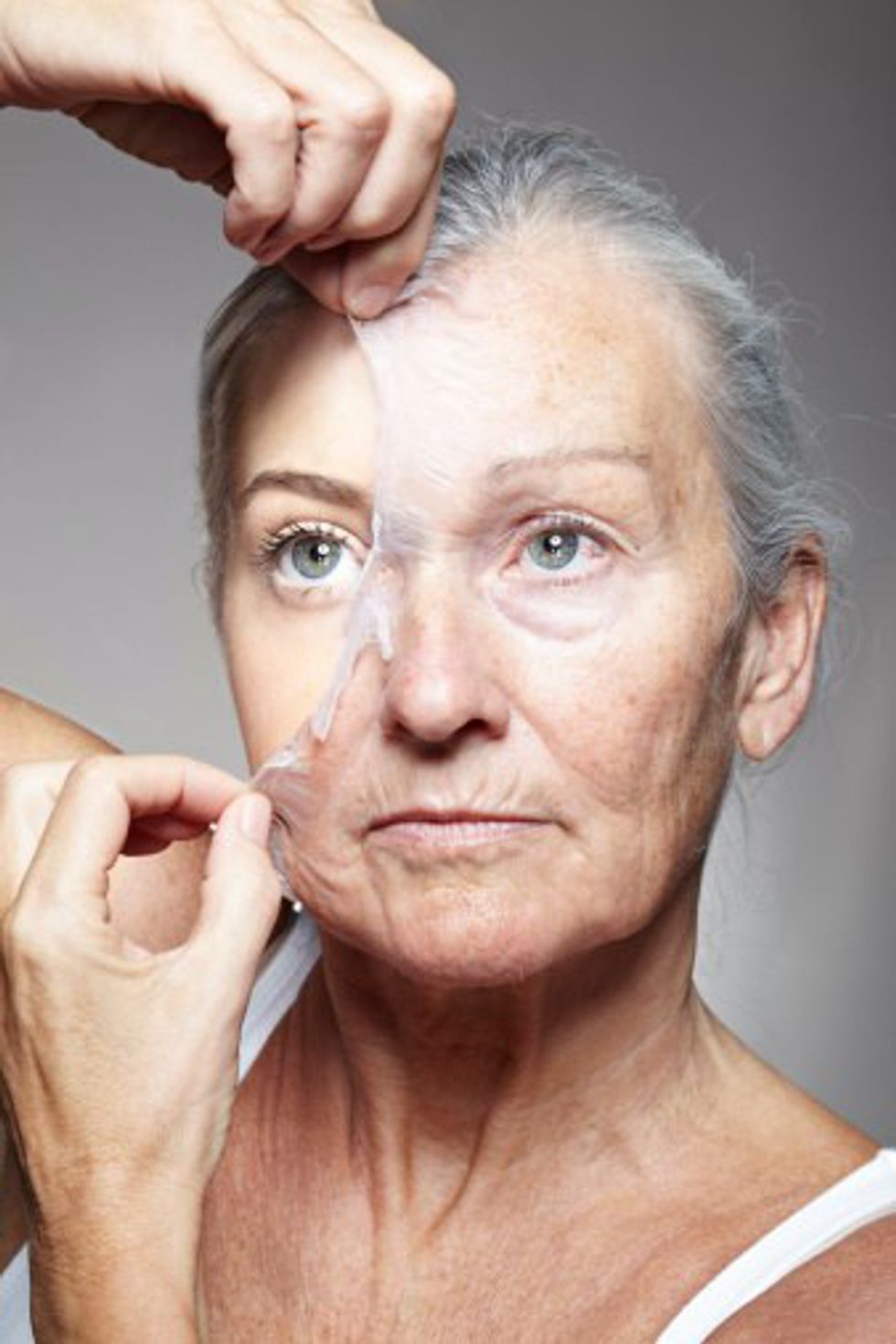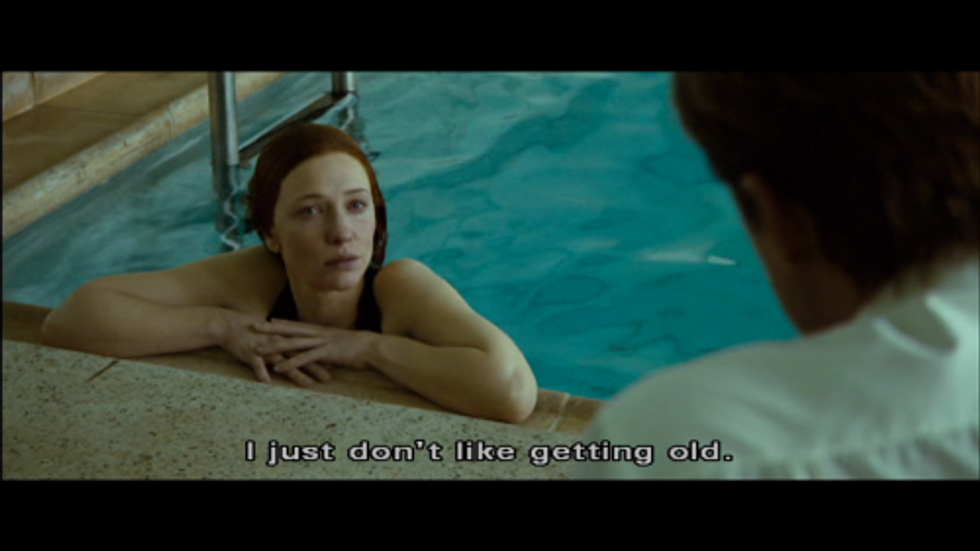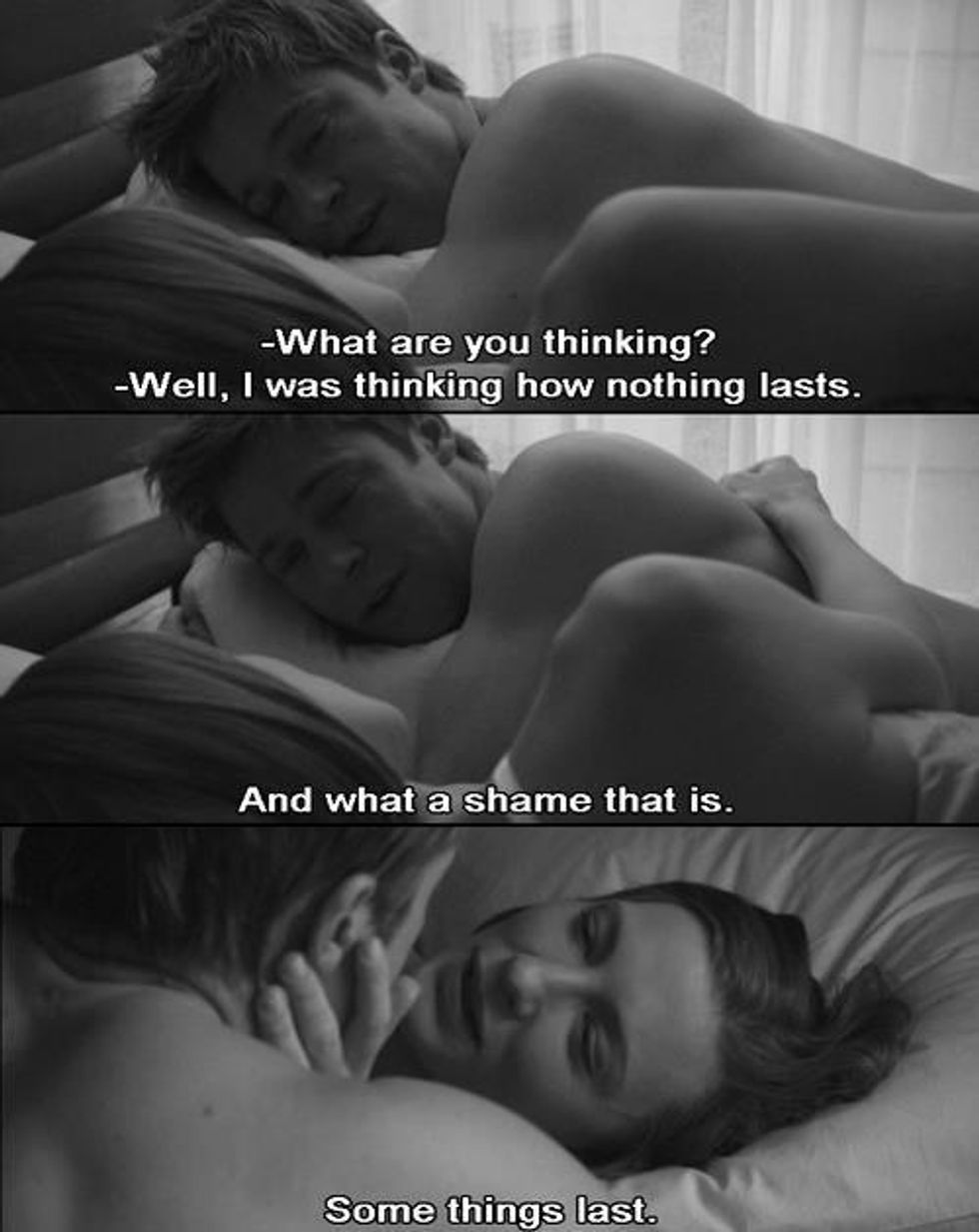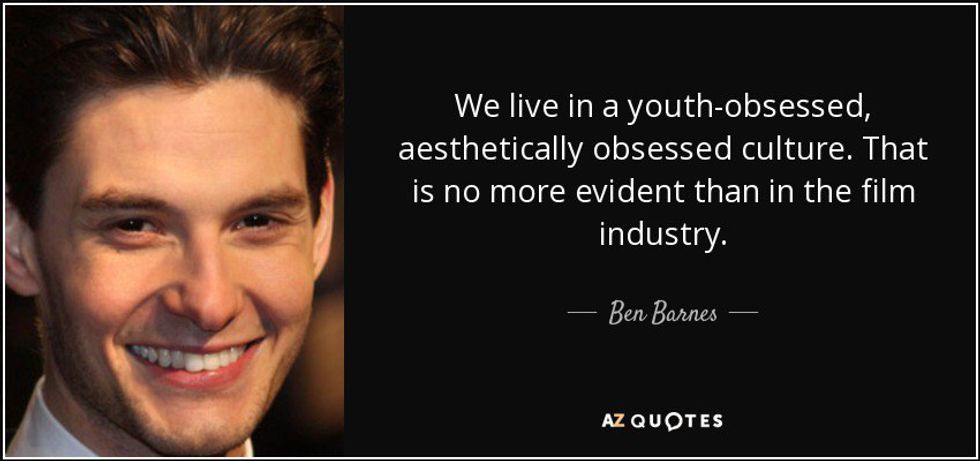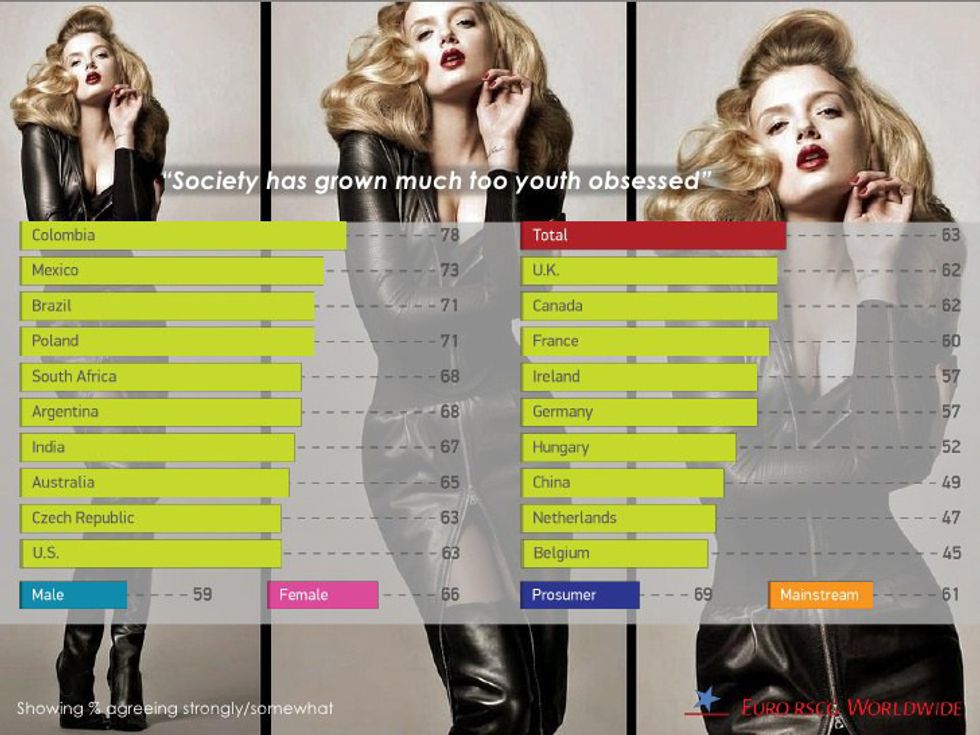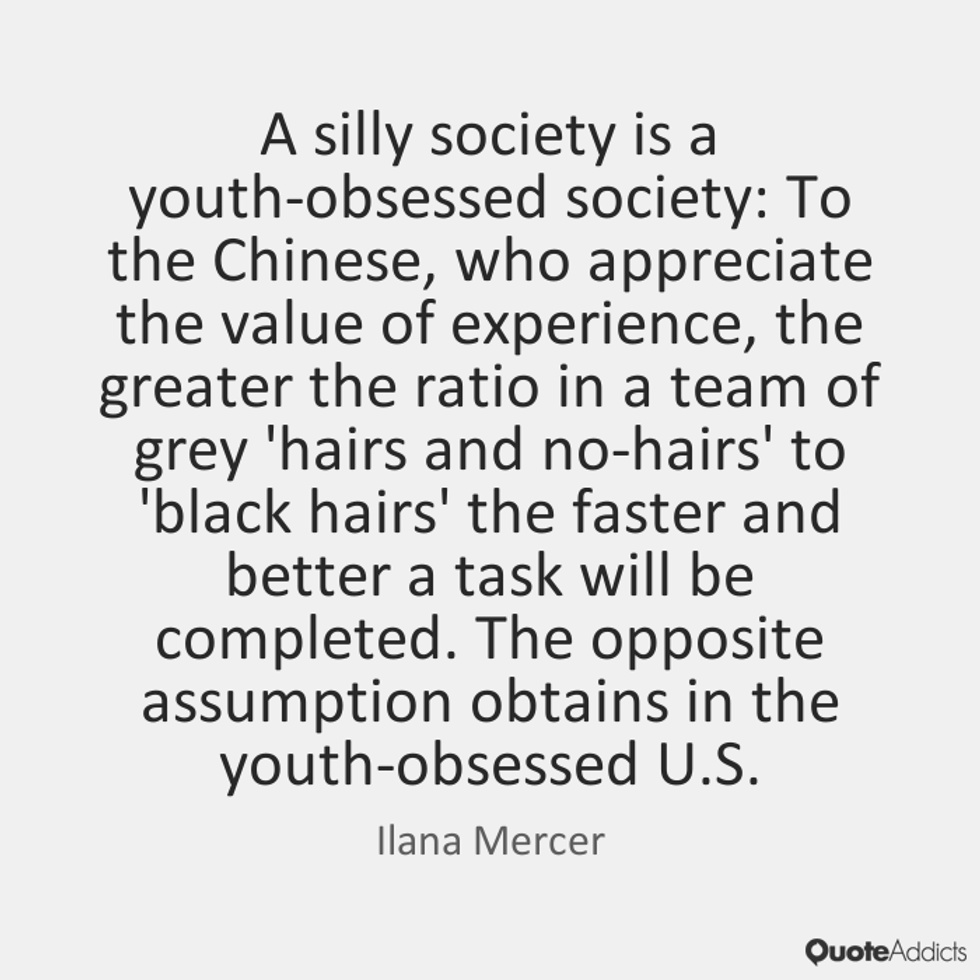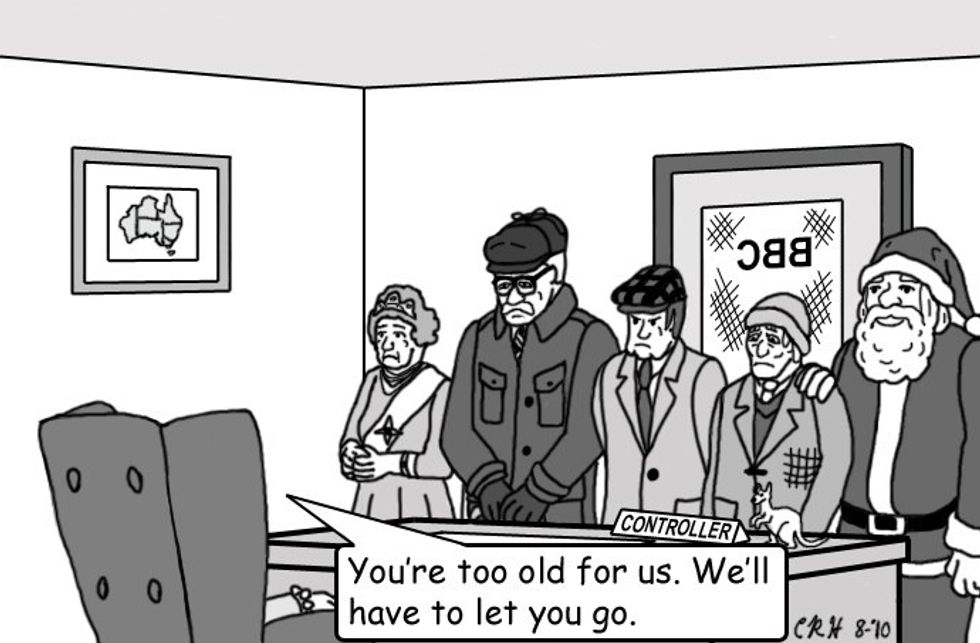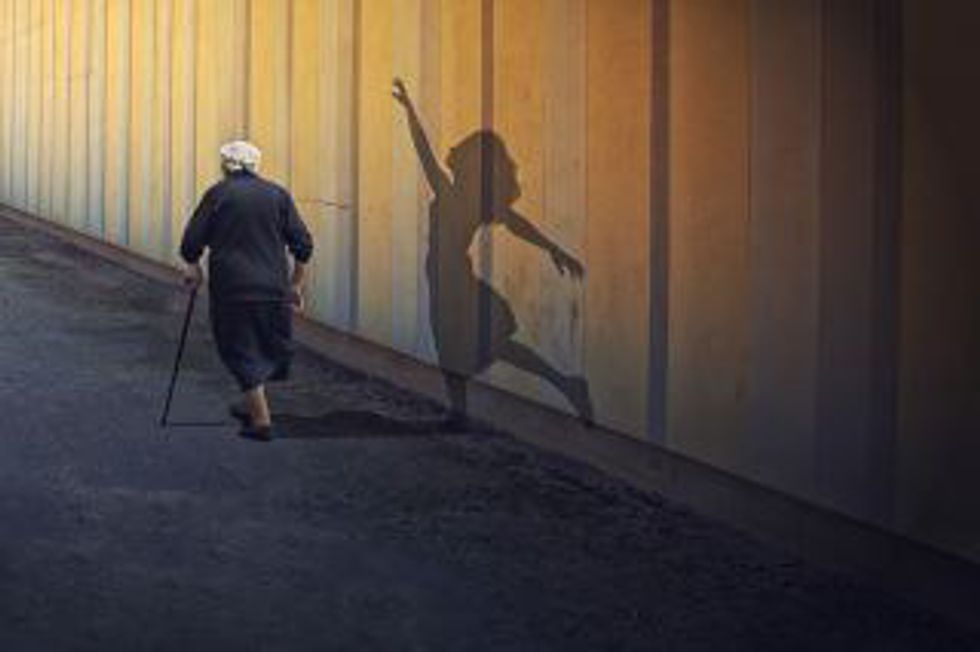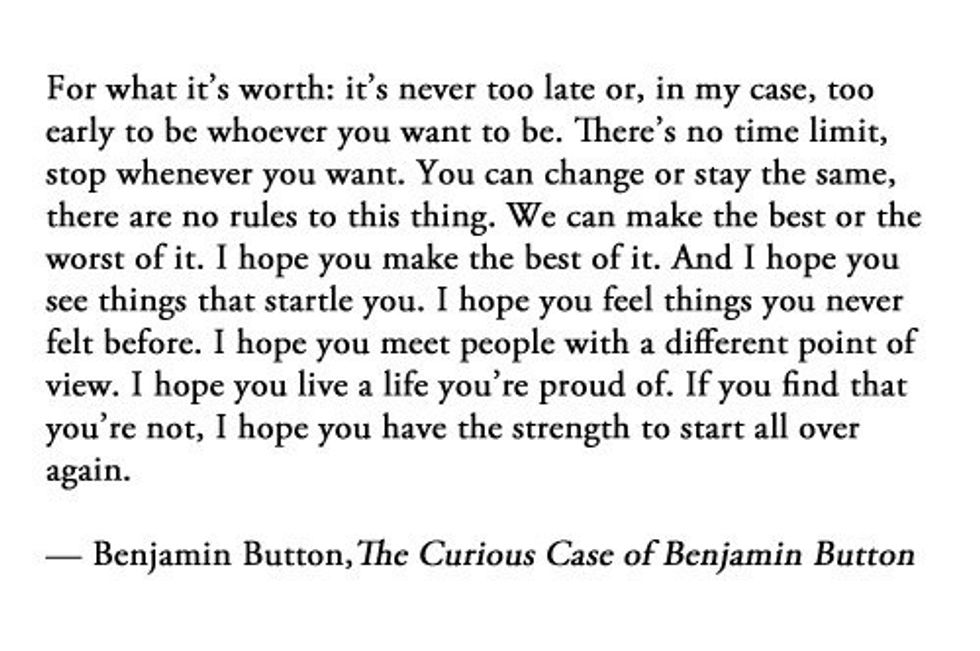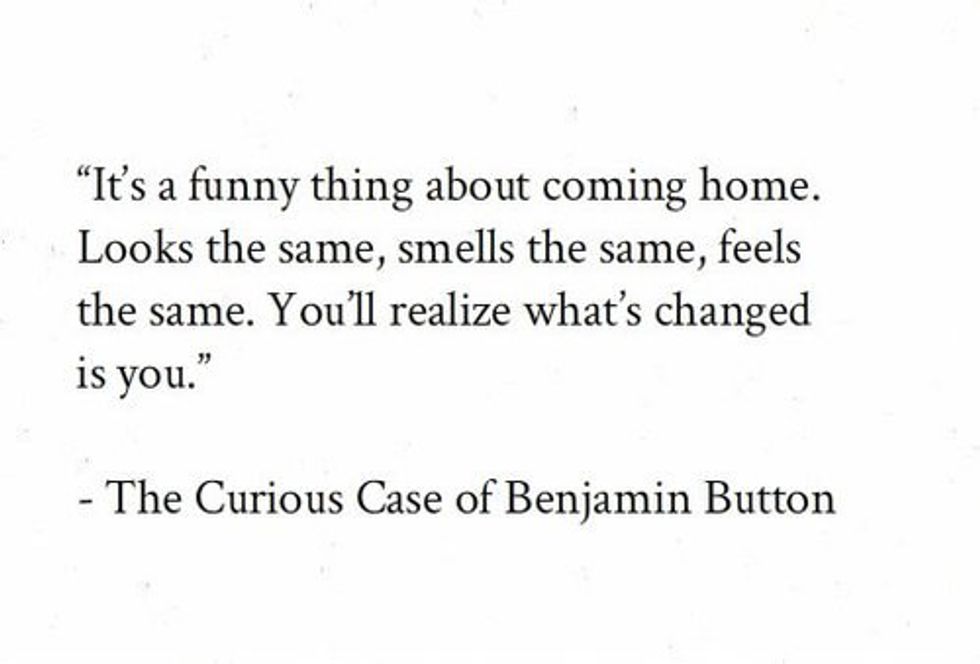American society has criticized and devalued age throughout history. Media has made this widespread, negative-image, of aging a socializing agent in the minds of Americans. Not only has age been stereotyped as a time of decline and removal from society, society has accepted this stereotype as a reality for most aging people. In the movie, The Curious Case of Benjamin Button, the concept of aging takes on a whole new form—In Benjamin Button’s case, aging in reverse. So what does it mean to age in reverse? In a way, it doesn’t necessarily mean we are born with older-appearances, like Button, but perhaps the mental and emotional reversal of aging can be a case for anyone. Button’s outer appearances reflected that of someone much older than himself, however, his mind was young. As he began to biologically, grow older from the time he was born, his body grew younger. Likewise, as his body grew younger, his mind grew very old, and eventually his outer appearances reflected a toddler, but his internal mind was suffering from Dementia. Everyone he knew, grew old around him, as he grew younger. The story serves a societal function, the message it sends speaks to the society in which we live—one that neglects to value old age, and emphasizes the beauty of youth.
Benjamin Button’s story changes the entire dynamic of the way we think about aging, and it raises a number of considerations. While some people feel younger on the inside, they may appear older on the outside. Benjamin is out-casted and treated differently from his peers simply because he looks older than them. This reveals the societal emphasis on youth and its devaluing of old age. This is similar to how people treat aging persons in society, the majority of society believes aging is a time for retirement from the community—old age is seen as a time of decline and removal from the social world. Though Benjamin’s reversed aging is not very realistic, it does symbolize a number of contexts that are highly-relevant to society’s attitudes toward aging.
When Benjamin is only seven years old, he has primarily elder friends, because young people don’t take interest in him. Many people remark how they feel bad for him, but he always keeps a positive attitude and says things like “why, there’s nothing wrong with old age.” This speaks to society on a new level, people constantly assume that elders are frail, weak, and incapable of living, or on their death beds. Despite the fact that Benjamin hears his mother say she thinks he will die soon, he appreciates his life as it is and does not let others make him feel that he is close to death. Everyone around him treats him like he is fragile but he feels better every day and does not let his outward appearance make him feel old inside.
This puts Benjamin’s story into a real-life perspective. We see what it is like to be young on the inside but appear old on the outside. People treat Benjamin differently while he appears to be old, they tell him things are too dangerous for him to do, they do not allow him to do things on his own. Though he appeared to be old, he felt very young inside, because he was actually a child. He wanted to go out in the world and experience life, but he was grounded by his body and his physical limitations. Many of his friends are elder people, because everyone assumes he is old, they draw their assumptions based off of his looks—not who he truly is inside. This shows how elders are isolated in society, young people don’t talk to Benjamin because they assume he is old. This is relevant to the aging people in society that still feel very young at heart, their souls feel younger, yet they have physically aged. Everyone is shocked by Benjamin’s appearance and people treat him differently because of it. He looks old, so people treat him like he is old—when really, regardless of age or appearance, he is a person and he deserves to be treated like everyone else. Society assumes that an old body signifies a personality that meets the criteria of their outward appearance: old, frail, weak, dying. In reality, no matter how old someone appears to be on the outside how they feel can be very different. People judge one another based on appearances, and because of the value of youth in society, elders are disregarded and often passed by. While one’s outer appearance has nothing to do with the way they feel inside, it has everything to do with the way others treat them, and the assumptions they make about them.
Benjamin’s biological father abandons him at birth, after seeing the old and frail infant, he leaves him at the door step of a retirement home and he is adopted by the young woman who runs it. His father abandons him at the time he needs him most, but his adoptive mother sees him as a human being, “a child of God,” regardless of his appearance she loves him. This act is allegorical of the culture of American Society and its emphasis on youth as beautiful. Benjamin’s father didn’t value his baby boy the same way any other parent would, simply because he looked older. This symbolizes the attitudes people have about age, age is not seen as beautiful, nor valuable. Nonetheless, Benjamin was still a baby boy who needed his parents regardless of what he looked like. This symbolizes the relationship between children and their aging parents. As their parents age, some children do not believe they have filial responsibility to them. Some people are abandoned, neglected, abused, and isolated from their families in old age. This all has to do with the negative stigma society has given to age. Old age is not valued in society and the more people are not seen as valuable, they are dehumanized. When a class of people is seen as inhumane, or dehumanized by their society, they are not seen as equal and they’re not given equal respect.
Benjamin’s father felt sorry for his infant because he appeared very aged in such a tiny body. He later reveals that he felt leaving Benjamin would be protecting him from society and how he would be treated. While Benjamin is accepted by his peers in the nursing home, they are much older than he is, and he never feels like he fits in. He always feels out of place and wants to explore the world around him, but he is not allowed to because he is too weak. This reflects the stereotype that the end of life is a time of decline and weakness. This also reflects the way elders are treated, many caretakers keep them away from the outside world and don’t allow them to live. Once they reach old age, people see them as vulnerable, incapable, and weak. In old age, some people are actually very healthy and capable of doing more than they’re allowed, they must feel trapped inside their bodies—like Benjamin does.
Benjamin remarks “what if I told you, I am getting younger while everyone else around me is getting older.” To which he receives the response “I’d feel sorry for you, you have to watch everyone you love die before you.” This particular scene speaks to the feelings of elders in their old age. While many people grow into their old age feeling much younger and identifying with a younger version of themselves, some do feel older. This may make them feel disassociated from their peers, as if they cannot relate to them. Benjamin can relate to the other people at the nursing home, but only because they talk to him like he is one of them—externally he is, but internally he is not; so he always feels out of place. This relates to aging people as they grow old on the outside, some grow younger internally, while many of their friends may experience old-age differently. Those who live long into very-old-age, must endure the pain of watching everyone around them die before them—which is a very difficult burden to bear.
As Benjamin grows older, biologically, he appears younger. Although he has always been the same person on the inside, people treat him differently when he looks younger. They invite him places, want him to go out and experience life, drink, experience women etc. While he looked older no one ever suggested these activities and always told him he was too frail and weak to do them. When his old friends see him, as he transforms into the young man he has always been inside, they do not expect him to look better or younger. This reflects society’s belief that old-age is a time of decline and illness; people do not expect Benjamin to look good, similarly society assumes that elders are unhealthy and frail. The younger Benjamin looks, the younger the friends he makes are. This symbolizes how people treat one another based on looks. Regardless of one’s age of appearance they can be friends with anyone, but elders are isolated because people assume they cannot relate to them or become friends with them. Benjamin’s growing youth and younger friends, completely embodies the isolation and maltreatment of elders. The younger he looks, the better he is treated, the more friends he has, and the more he is allowed to do—which is not fair. His mother even says to him “it looks like you’ve been born again,” after seeing how young he has begun to look. But, he has always been the same Benjamin, the only difference being his outward appearance.
As Benjamin slowly progresses into his younger looking body, he watches his friend Daisy live her life in her youth. Even as children, she was always able to be a child, which Benjamin was never allowed to do. Now, in her twenties, she gets to enjoy her youth and vitality. She is having fun, but Benjamin is still limited by his aged body. Though he is biologically, nearly the same age as her, he does not feel like he fits in with her and her friends. They are all the same age, but they treat Benjamin like an old man, and this actually makes him feel like an old man. He does not feel old because of his soul, but because of his limitations, his experiences—he has only ever been able to do the things old people do. This makes viewers consider, if you only do things elders do, does that make you feel old? If people are constantly treated like they are old, weak, and vulnerable—are they actually being drained of their true vitality and potential? In society, many people hold the belief that elders are incapable of doing things, so they do not allow them to do them. But does that actually prevent them from enjoying their Golden years? It does, it stops elders from doing the things they want to do because people treat them differently solely on the basis of their age.
When Benjamin’s age meets Daisy in the middle, he starts to actually appear to be his biological age. They have a short romance and enjoy each other as they are finally able to enjoy one another and feel normal. However, when Daisy gets pregnant, Benjamin does not feel like he can be a father because he knows he will only continue to get younger. He eventually abandons Daisy and their daughter Carol, before she can even remember him at all. Soon, Daisy gets a call from child-services about a young boy names Benjamin, who is in bad health, and seems to know her. She takes him in and cares for him as his mind regresses and he experiences the mental and internal repercussions of aging, while externally he becomes younger and younger. He develops dementia and cannot remember where he is or who he is most of the time. This phase in Benjamin’s development speaks to society in a different way. Viewers can identify with him as he regresses internally, loses his memory of his life, and gets very frustrated with this change. He says, “I had this whole life, but I just can’t remember what it was.” Here we can identify with elders in our world and see what it may feel like to go through this. Rather than blaming them for acting out because they cannot remember, we see what it is like to not be able to remember and how that must feel to an aging person. The more we can begin to relate to aging people, understand them, and identify with them—the less we are able to dehumanize them. I feel this is what the filmmaker intended in making this film, he wanted his audience to understand a group of people that have always been misunderstood. Benjamin’s character makes that possible for people of all ages.
In The Curious Case of Benjamin Button, the filmmaker is portraying a negative view of aging, in a critical way. The filmmaker aims for pathos, evokes emotion from viewers, and presents Benjamin’s story in an empathetic way. In this way, viewers are able to empathize with Benjamin, understand his story—and gain perspective on what it may feel like as an aging person in society. In Benjamin’s case, he is so young on the outside, but his body reflects the complete opposite of this youth. As we see Benjamin struggle, we begin to identify with his pain and understand the societal critique it symbolizes. If we can identify with Benjamin’s feelings toward being young in an old person’s body, then we can identify with and understand those who are appear to be old externally, but feel very young on the inside.
The filmmaker chose to convey these images about aging in a way that could be relatable to younger people. Since society is so ignorant to elders and old-age, presenting an aging in reverse character makes the themes easier to comprehend for those who do not understand old age. If we can relate to a child, who in every way, embodies youth and vitality. Then we can relate to a child who feels that way inside but is restricted by his body. Benjamin embodies everything it means to be old, he is physically restricted by his cataracts and arthritis, but internally he feels very young. He symbolizes people who have aged but feel much younger internally, yet they are held back by the limitations of their bodies. The filmmaker is clearly critiquing the American Society and the emphasis on youth as beauty and the devaluing of old-age.


